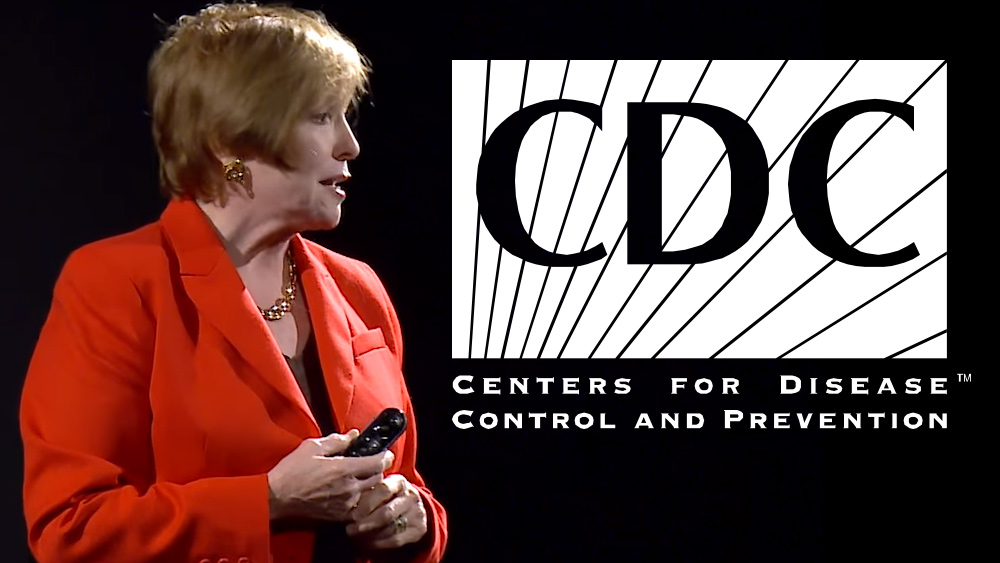Annual flu shots linked to increased risk of miscarriage
09/18/2017 / By Russel Davis

A study funded by the Centers for Disease Control and Prevention (CDC) and published in the journal Vaccines revealed that receiving one particular flu vaccine was associated with an increased risk of early miscarriage.
As part of the study, a team of researchers at the Marshfield Clinic Research Institute in Wisconsin recruited 485 pregnant women aged 18 to 44 who already had a miscarriage during the flu seasons of 2010-2011 and 2011-2012. This group was compared against 485 pregnant women of similar ages who had normal deliveries during the same period.
The results showed that among women who had a miscarriage, 17 received the H1N1 vaccine in the 28 days prior to the incident. These patients also appeared to have been vaccinated before the flu season kick in.
The research team also found that most miscarriages occurred during the first trimester, but noted several other occurrences in the second trimester. According to the health experts, the median age of the fetus at time of miscarriage was seven weeks.
In contrast, four of the women in the normal delivery group received the flu vaccine in the preceding 28 days and were previously immunized during the previous flu season.
“I think it’s really important for women to understand that this is a possible link, and it is a possible link that needs to be studied and needs to be looked at over more [flu] seasons. We need to understand if it’s the flu vaccine, or is this a group of women [who received flu vaccines] who were also more likely to have miscarriages,” said Dr. Amanda Cohn, senior adviser for vaccines at the CDC.
Epidemiologist and lead author James Donahue stressed that the findings only showed a correlation, not a causal relationship, between flu vaccine and increased odds of miscarriage if the women were vaccinated prior to the flu season.
However, the Marshfield study contained several limitations, such as the small number of women who had miscarriages as well as a small population of women who received flu vaccines in two consecutive years.
Experts still push for flu vaccination despite miscarriage risk
A CDC research on pregnant women during the 2009 H1N1 flu pandemic also revealed that expectant mothers who were vaccinated were four times as likely to end up being hospitalized due to influenza compared with the general population.
However, the CDC, study authors, and the American College of Obstetricians and Gynecologists continue to recommend routine flu vaccination despite both previous and recent findings. (Related: H1N1 vaccine linked to 700 percent increase in miscarriages.)
“Scientifically, it is unclear why this would occur. Additional studies are needed to address the concern raised by this study. In evaluating all of the available scientific information, there is insufficient information to support changing the current recommendation, which is to offer and encourage routine flu vaccinations during pregnancy regardless of the trimester of pregnancy,” ACOG president Haywood Brown told The Independent online.
According to Dr. Cohn, the open release of the recent study demonstrates that there is no cover-up. The open publication also proves that public health agencies continue to monitor the safety profile of vaccines, the CDC official said.
“Really, this study highlights how strong our vaccine safety surveillance is. This is exactly the type of signal that we see because we do such a diligent job focusing on flu vaccine safety. Clearly, we need to study this more. We know that flu vaccine is safe and effective at preventing serious infection in pregnant women and their unborn children. It is really important that women continue to get vaccinated,” Dr. Cohn said in a separate NBC News article.
The Advisory Committee for Immunization Practices was slated to discuss the findings in October.
Sources include:
Tagged Under: Flu, Flu shots, immunization, influenza, miscarriage, pregnancy, spontaneous abortions, vaccines




















